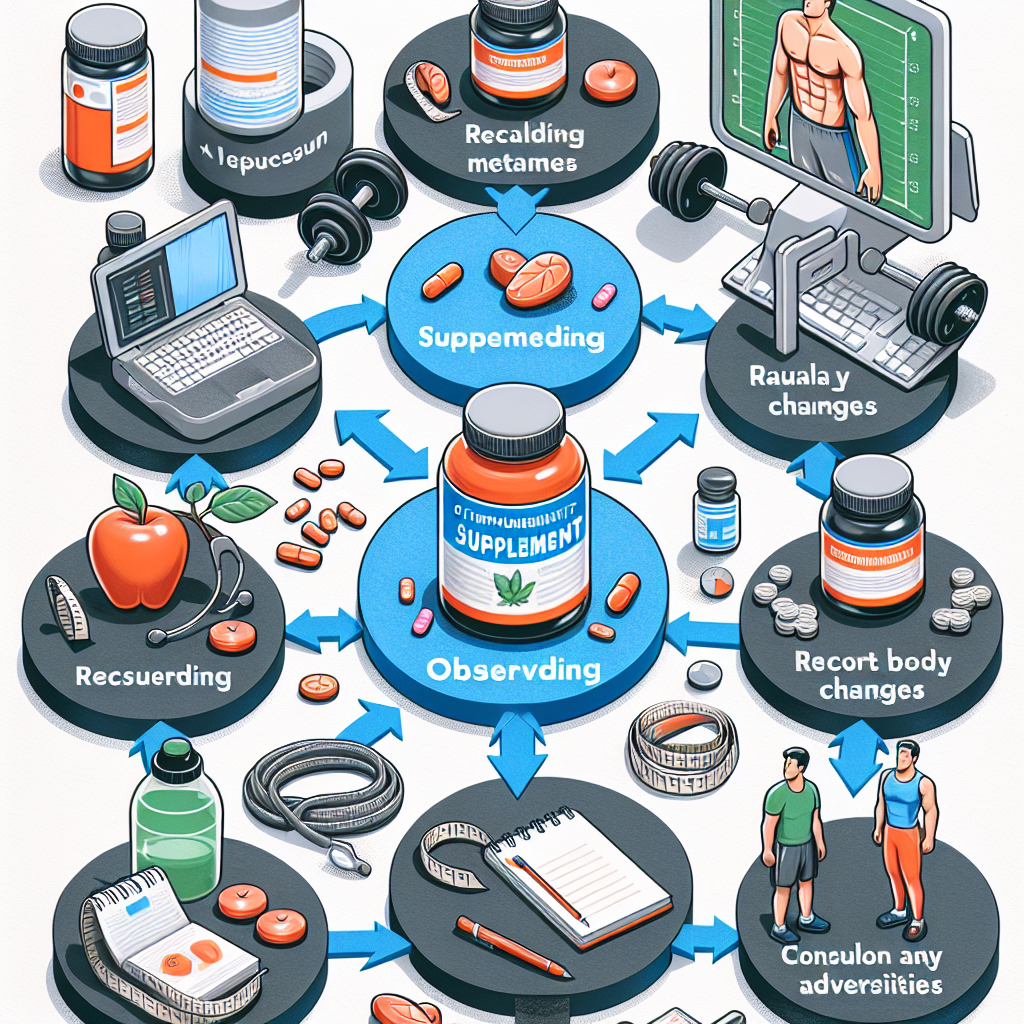
Unveiling the Mystery: Is Your Supplement Truly Effective?
When you reach for that bottle of vitamins or fish oil pills, you might wonder how well they’ll work and if they’re safe. The first thing to ask yourself is whether you need them in the first place. More than half of all Americans take one or more dietary supplements daily or on occasion. Supplements are available without a prescription and usually come in pill, powder or liquid form. Common supplements include vitamins, minerals and herbal products, also known as botanicals.
People take these supplements to make sure they get enough essential nutrients and to maintain or improve their health. But not everyone needs to take supplements. It’s possible to get all of the nutrients you need by eating a variety of healthy foods, so you don’t have to take one. But supplements can be useful in filling in gaps in your diet.
Setting the Stage
Before diving into the efficacy of supplements, it’s essential to understand that no supplement is a magic bullet. Achieving optimal health is a multifaceted journey that involves a balanced diet, regular exercise, adequate sleep, and stress management. Supplements can complement this journey but should not be seen as a standalone solution. With that mindset, let’s explore how to gauge the effectiveness of your supplements.
Key Takeaways
- Supplements should complement, not replace, a balanced diet and healthy lifestyle.
- Understanding the role and mechanism of each supplement is crucial to assessing its effectiveness.
- Consistent tracking of your health status and symptoms can indicate how well a supplement is working for you.
- Research and evidence, such as clinical trials, are key to validating a supplement’s claims.
- Consulting with healthcare professionals ensures that your supplement regimen is safe and tailored to your needs.
Diving into the Basics of Supplement Use
Let’s begin by addressing a common question: What exactly do supplements do? Supplements are designed to provide nutrients that you might not be consuming in sufficient amounts. But it’s not just about popping pills; it’s about making sure these supplements are actually being absorbed and utilized by your body.
What Supplements Do to Your Body
Supplements can play a significant role in bolstering your health. For example, vitamin D supports bone health, fish oil omega-3s may help some who have heart disease, and a vitamin C supplement can be important for those who don’t eat enough fruits and vegetables. But the key is to understand that supplements should add to your health, not take center stage.
When you introduce a supplement into your routine, it enters your bloodstream and can help correct nutrient deficiencies or support certain bodily functions. However, the body’s response can be subtle. Unlike medications, which can produce immediate, noticeable effects, supplements often work in the background, contributing to long-term health.
Daily Intake and Recommended Dosages
Understanding the recommended daily intake and proper dosages for supplements is critical. Taking too much of a certain supplement can be just as harmful as not taking enough. For instance, too much vitamin A can cause headaches and liver damage, reduce bone strength, and cause birth defects. Excessive iron intake can lead to nausea and vomiting and may damage the liver and other organs.
Be sure to check the label of any supplement you’re considering and follow the recommended dosage instructions. If you’re unsure, consult with a healthcare provider who can help you determine the right amount based on your health status, dietary intake, and nutritional needs.
Remember, more is not always better when it comes to supplements. Balance and moderation are key factors in their effectiveness.
Finding Clues: Tracking Your Supplement’s Impact
How do you know if your supplement is a silent supporter or just a placebo? The answer lies in tracking. Just like a detective follows clues to solve a mystery, you can monitor your health and wellbeing to detect the influence of a supplement.
Logging Your Journey
Start a health diary. Note down what you take, how much, and when. Record how you feel overall, your energy levels, sleep quality, and any changes in symptoms or wellness. This log becomes your personal health map, revealing patterns and effects that may be attributed to the supplements you’re taking.
It’s not enough to simply jot down notes haphazardly. Be consistent with your tracking. Daily entries can provide a clearer picture over time. This methodical approach can help you and your healthcare provider make informed decisions about your supplement use.
Spotting Changes: What to Look For
When tracking your supplement’s impact, be on the lookout for both positive changes and potential side effects. Here are some signs that your supplement might be working:
- Improved energy levels and mental clarity
- Better sleep quality
- Enhanced mood and stress management
- Physical improvements, such as healthier skin, hair, and nails
- Reduction in symptoms of deficiency, if that was your reason for supplementation
However, keep an eye out for negative changes too. If you notice any new symptoms or worsening of existing ones, it’s crucial to consider that the supplement might not be right for you.
Scientific Backing: Does Research Support Your Supplement?
While personal experiences with supplements are valuable, they’re just one piece of the puzzle. To truly understand a supplement’s effectiveness, we need to turn to research and clinical trials that provide evidence beyond anecdotes.
Understanding Clinical Trials and Their Outcomes
Clinical trials are the gold standard for determining the efficacy of health interventions. These studies test supplements under controlled conditions to see if they produce significant health benefits. When evaluating research, look for large-scale, randomized, placebo-controlled trials. These are designed to eliminate bias and provide reliable results.
It’s important to understand that not all studies are created equal. Some may have design flaws, while others could be too small to yield conclusive findings. Always consider the quality of the research when assessing the credibility of a supplement’s claims.
Comparing Your Results to Study Findings
Once you’ve gathered information from your health log and researched clinical trials, it’s time to compare notes. Does your personal experience align with the outcomes reported in studies? If the research supports the benefits you’re noticing, that’s a strong indication that your supplement may be effective.
However, if there’s a disconnect between science and your experience, it may be worth reevaluating your supplement choice. Remember, supplements work differently for everyone, and what’s effective for one person might not be for another.
Combining personal tracking with scientific evidence gives you a comprehensive view of your supplement’s effectiveness, helping you make informed decisions about your health regimen.
Collaborating with Professionals
While keeping track of your health and supplement effects is something you can do on your own, there comes a time when professional guidance is invaluable. After all, healthcare providers have the expertise to understand the nuances of supplement interactions, optimal dosages, and individual health needs.
When to Consult a Healthcare Provider
It’s wise to talk to a doctor or a registered dietitian before starting any new supplement, especially if you have underlying health conditions or take other medications. They can help you understand whether a supplement is necessary, the right dosage for your needs, and how to monitor its effectiveness. Also, if you experience any adverse effects or if your health diary suggests the supplement isn’t working, it’s time to seek professional advice.
Navigating Blood Tests and Other Diagnostics
Blood tests and other diagnostic tools can provide objective measures of a supplement’s effectiveness. For instance, if you’re taking vitamin D supplements, a blood test can measure the levels of this nutrient in your body to ensure they’re within an optimal range. Your healthcare provider can order these tests and interpret the results, guiding you on whether to continue, adjust, or stop your supplement intake.
Quality and Purity of Your Supplements
The market is flooded with supplements, and not all are created equal. The quality and purity of the supplements you choose are crucial for their effectiveness and your safety. But how can you be sure that what’s on the label is what’s in the bottle?
Third-Party Testing and What it Means for You
Third-party testing by organizations like U.S. Pharmacopeia (USP), NSF International, or ConsumerLab.com means that an independent party has reviewed the product for quality. This is your assurance that the supplement contains the ingredients listed on the label and does not contain harmful levels of contaminants. Look for these seals of approval when choosing supplements.
Label Literacy: Deciphering the Fine Print
Understanding the information on supplement labels is key to choosing high-quality products. The label should include the name of the supplement, the name and address of the manufacturer or distributor, a complete list of ingredients, and the serving size. Pay close attention to the ‘Supplement Facts’ panel, which lists the active ingredients per serving and other added ingredients like fillers, binders, and flavorings.
Labels can also tell you about the potency, the purity, and the bioavailability of a supplement. For example, labels on probiotic supplements might specify the number of live organisms in each dose. If you’re ever in doubt about what a label means, don’t hesitate to ask a healthcare provider or pharmacist for clarification.
Realizing Full Potential: Optimizing Absorption and Timing
To get the most out of your supplements, it’s not just what you take, but how and when you take them. Absorption is the key to ensuring that your body can utilize the nutrients you’re giving it. Some supplements are best taken with food to enhance absorption, while others might be better on an empty stomach.
Combining Supplements with Diet for Best Results
The foods you eat can have a big impact on how well your supplements work. For instance, fat-soluble vitamins like A, D, E, and K need fat to dissolve and be used by your body. So, taking them with a meal containing healthy fats can increase their effectiveness. On the other hand, high-fiber meals might interfere with the absorption of certain minerals like iron and calcium.
Here’s a quick guide to pairing your supplements with food:
- Vitamin D: Take with a meal that includes healthy fats.
- Iron: Consume with vitamin C-rich foods to enhance absorption, but avoid high-fiber foods or calcium which can interfere.
- Calcium: Pair with vitamin D to improve absorption.
- Probiotics: Take on an empty stomach when stomach acid levels are lower.
It’s not just about what you take; it’s also about supporting your body in using these nutrients effectively.
Timing Your Intake: When and How Often to Take Supplements
Timing can make a big difference. Some supplements are best taken in the morning, like B vitamins that can boost energy and concentration. Others, like magnesium, may be more beneficial at night as they can promote relaxation and sleep.
Consistency is also crucial. Some nutrients build up over time, while others are used quickly. Stick to a schedule to maintain optimal levels in your body. If you’re taking multiple supplements, you might need to spread them out to prevent competition for absorption.
Remember, when in doubt, the label is your best guide, and a healthcare provider can offer personalized advice.
What’s Not Working: Red Flags in Supplement Effectiveness
Not all supplements will work for everyone, and sometimes, despite our best efforts, a supplement just isn’t the right fit. It’s important to recognize the signs that a supplement may not be beneficial for you.
Indicators Your Supplement May Not Be Beneficial
Here are some red flags that might indicate your supplement isn’t effective:
- No improvement in symptoms or health goals after a reasonable trial period.
- Unexpected or new symptoms that start after beginning the supplement.
- Lab tests that don’t show changes in nutrient levels, despite supplementation.
- Supplements that claim to cure everything. If it sounds too good to be true, it probably is.
- Persistent confusion about what the supplement is supposed to do for you.
If you’re experiencing any of these issues, it might be time to reevaluate your supplement strategy with a healthcare professional.
Supplements and Placebo Effect: Understanding the Difference
It’s also important to distinguish between a supplement’s true effectiveness and the placebo effect. The placebo effect occurs when people experience a perceived improvement in their condition after taking a treatment that has no therapeutic effect. This can happen with supplements too.
To determine if it’s the supplement or the placebo effect at work, consider the following:
- Are improvements based on objective measures (like blood tests), or are they subjective (based on feelings)?
- Is there solid research backing the supplement’s effectiveness?
- Have you given the supplement enough time to work?
Understanding the difference can save you time and money and help you make more informed decisions about your health.
Frequently Asked Questions (FAQ)
Can I feel if a supplement is working?
Feeling a difference can be tricky with supplements. Some, like a quick hit of caffeine from a pre-workout supplement, offer immediate effects. However, most supplements work subtly over time. You might notice gradual improvements in your energy levels, skin health, or digestion, depending on what you’re taking. It’s like watching a plant grow; day-to-day, you might not see the changes, but over weeks and months, the growth is evident.
How long should I take a supplement before judging its effectiveness?
Patience is key when it comes to supplements. Generally, a trial period of about three months is a good benchmark for many supplements, as it allows time for any potential benefits to manifest. However, this can vary depending on the type and purpose of the supplement. Always follow the guidance on the label and consult with a healthcare provider for personalized advice.
Should I trust the claims made by supplement manufacturers on the packaging?
While many supplements can provide health benefits, not all claims made by manufacturers are backed by strong evidence. It’s important to be skeptical and do your own research. Look for products that have been third-party tested and check if the claims are supported by credible scientific research. When in doubt, talk to a healthcare professional before starting any new supplement.
Does the price of a supplement correlate with its effectiveness?
Not necessarily. A higher price tag doesn’t guarantee a better product, and a bargain price doesn’t mean it’s ineffective. The key is the quality of the ingredients and the credibility of the manufacturer, not the cost. Sometimes, you’re paying extra for fancy packaging or a brand name. Focus on the purity, potency, and the presence of third-party testing over price.
In conclusion, navigating the world of supplements can be overwhelming, but with the right approach, you can make informed decisions. Remember to track your health, do your research, and consult with professionals. By being a savvy consumer and an active participant in your health journey, you’ll be better equipped to choose supplements that are truly effective for you.


